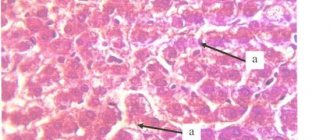: Reading time:
Psychotherapist and clinical psychologist Yulia Khvorova answers common questions about bipolar affective disorder (BAD).
In this article, I tried to answer the questions that clients with newly diagnosed bipolar disorder ask me. I will try to answer simply and clearly, based on scientific facts and information that I received during practical work with BAR.
What symptoms are used to diagnose bipolar disorder? How does the disease manifest itself?
Bipolar disorder is characterized by severe mood swings. The mood for several months, weeks or (less often) for several hours “goes to extremes” - it becomes too cheerful and too bad.
The mood for several months, weeks or (less often) for several hours “goes to extremes” - it becomes too cheerful and too bad.
Mania or hypomania is an elevated mood and violent physical and mental activity. Mental activity becomes heterogeneous - attention captures every detail, but it is difficult to concentrate on one thing for a long time. Thoughts are constantly “jumping”, one idea is quickly replaced by another. All emotions intensify: joy - to euphoria, irritation and resentment - to aggression, suspicion - to paranoia. Physical activity also increases: you almost don’t want to sleep (three hours of sleep seems enough), sexual desire increases. Behavior becomes impulsive, reckless, sometimes even adventurous and eccentric. A person can become obsessed with an idea. During a manic episode, delusions and hallucinations may occur.
Hypomania is liked by everyone who has experienced it at least once. With hypomania, unlike mania, delusions or hallucinations occur less frequently, criticality remains, and aggression is lower. However, hypomania is not a normal mental state; the brain works in an enhanced mode. Reserve resources are used to speed up mental processes, and when they run out, complete exhaustion occurs. With hypomania, the psyche seems to be running a sprint. Imagine if you only run all your life - your body will quickly deplete and wear out. It’s the same with the psyche. Hypomania can develop into more unpleasant states - mania or depression.
Reserve resources are used to speed up mental processes, and when they run out, complete exhaustion occurs. With hypomania, the psyche seems to be running a sprint.
Another sign of bipolar disorder will be not just a bad mood, but depression, from mild short-term to severe long-term. Here everything is the other way around. Activity drops: when you need to do something, there is neither strength nor desire. Mental activity is even more difficult: in addition to the lack of desire and strength, it is difficult to concentrate, remember, analyze, and make a decision. The experience of emotions becomes dull, with the exception of worsening resentment, guilt, hopelessness, confusion, anxiety or indifference. Appetite changes, insomnia or excessive sleepiness appears. Even if you are a very cheerful person, severe depression can cause suicidal thoughts. With severe depression, delusions and hallucinations may occur.
These phases can replace each other and can appear simultaneously. For a long time, only one pole can manifest itself - then even doctors, instead of correctly diagnosing “BAD,” may first diagnose “depression.” The breaks between episodes (intermissions) are different for everyone - it can be a month, a year, three years, five years.
In a healthy person, changes in the activity of mental processes are not so contrasting and are more amenable to regulation. They do not lead to a deterioration in everyday functioning - a person can successfully cope with the professional and academic responsibilities assigned to him, and establish and maintain relationships with others.
Pharmacological approach
Pharmacotherapy is the main stage in the treatment of manic-depressive psychosis. You should not trust those who claim that the disorder can be dealt with without her intervention. It has been established that it can reduce the mortality of such patients, in particular from suicide, by 4 times.
However, scientists still cannot establish a single, clear and effective regimen of drug therapy. This is due to a paradoxical combination of symptoms.
In the classic version of psychosis, a combination of two phases is observed: mania and depression. Depression is accompanied by low mood, apathy, inertia of thinking and inhibition of motor reactions. During the manic period, the patient, on the contrary, experiences motor excitement, mental activity and high spirits.
In some cases, delusions and hallucinations appear in the picture of the disorder.
These phases alternate cyclically. Each of them lasts from several weeks to 2 years. On average, their course is 3–6 months. Between them there are light intervals called interphase or intermission. Their duration ranges from 3 to 7 years. But the disease can proceed without them, smoothly moving from one phase to another.
The question arises: how to treat opposite diseases at the same time? In some cases, when one of the two forms predominates during the disorder, it is easier to choose therapy. But when they are pronounced simultaneously, some difficulties arise.
Properly selected, flexible pharmacotherapy, adapted to the currently existing set of symptoms, helps the patient to stabilize the condition and achieve normal functioning in society.
Unfortunately, today there is no single medicine that can stop both manic and depressive stages, as well as psychotic manifestations.
Normotimics
The first choice drugs for bipolar disorder are mood stabilizers. They are used for preventive purposes during the period of intermission, as well as during both phases.
The drugs in this group stabilize mood and help prevent or reduce the manifestations of relapses. Previously, it was believed that they relieved manic symptoms to a greater extent. However, at present there are already drugs whose action is aimed at the depressive picture.
The most common means in this group include:
- lithium preparations;
- anticonvulsants: Carbamazepine, Depakin, Konvulex;
- Lamotrigine.
Not all mood stabilizers have the same effect. Thus, Lamotrigine exhibits antidepressant activity. It is ineffective during the development of the manic phase. Carbamazepine, on the contrary, is more effective in mania.
Lithium preparations affect both phases. In addition, they reduce the risk of suicide. This is due to their ability to reduce the severity of aggressiveness and impulsivity.
At the time of development of one or another stage, aggressive therapy is used, that is, the use of loading doses of drugs with an increase to the maximum level. In this case, they focus on the patient’s condition.
In addition, with this type of therapy, it is necessary to remember the possibility of phase inversion - the main problem of pharmacotherapy for bipolar disorder. Phase inversion is a change from depression to mania or, conversely, without clear intervals, as a result of medication abuse. For example, an inadequate dosage of an antidepressant not only eliminates signs of depression, but also causes mania.
Mood stabilizers are called the “gold standard” for treating bipolar disorder. In most cases, they are prescribed in pairs to achieve maximum effect. But you need to dose it correctly to avoid overdose. For example, lithium drugs are considered toxic, and their abuse can be quite dangerous. In other cases, there is a risk of developing emotional instability.
Antidepressants and neuroleptics
To relieve manic-depressive psychosis, antipsychotics are used only in extreme cases. They are used in moments of intense excitement, as well as when psychotic symptoms appear: delusions and hallucinations. This group of drugs is introduced into the treatment regimen for a short period of time.
In some cases, they are appropriate when rapid relief of an exacerbation is required. Preference is given to atypical antipsychotics because they have minimal side effects.
As for antidepressants, there is still debate among scientists about their usefulness in relieving manic-depressive psychosis.
Antidepressants can be used only during the depressive phase of the cycle, combining them with mood stabilizers. This is necessary to prevent the occurrence of phase inversion, that is, the development of mania. Some experts recommend resorting to antidepressants only if there are no results on the action of mood stabilizers.
It is necessary to maintain safety when prescribing antidepressants, since some of them have a stimulating effect, while others have a sedative effect. Stimulants are recommended for use in melancholic depression, the main manifestations of which are apathy, lack of will and lack of motivation to act.
For anxious depression, antidepressants with a calming effect are relevant.
The main cause of bipolar disorder is considered to be an imbalance of serotonin and other neurotransmitters in the brain. This explains the sharp lability of behavior. Pharmacotherapy is designed to restore the balance of mediators and thus stabilize the emotional background. That is why it is the first aid in case of development of the disorder.
Drug treatment, for the most part, involves an integrated approach, that is, the prescription of several drugs at once. In some cases, their number reaches 6–8 pieces. This volume is not desirable, but in extreme cases it is necessary. It is prescribed for a very short period of time to relieve acute manifestations of the disease.
The role of psychotherapy in relieving bipolar disorder
Despite the primary role of medications, psychotherapy also requires an obligatory presence in the lives of such patients. At the beginning of treatment, her efforts are aimed at explaining to the patient the need for drug intervention.
On the other hand, psychotherapy helps solve social problems. First of all, this is establishing relationships with oneself, increasing self-esteem, and finding new ways of self-regulation. Distorted behavior, aggressiveness, apathy or an excited state - all this entails a violation in interaction with the outside world, with other people. Psychotherapy will help restore lost connections, teach new communication and behavior skills, and explain how to control your rage, anger and other emotions.
Dialectical behavior therapy, developed for the treatment of behavioral disorders with severe emotional imbalance, is considered particularly effective in this regard. This is a worldwide technique aimed at correcting borderline personality states, suicidal tendencies and self-harming behavior.
It is based on the assertion that people with bipolar disorder lack the necessary skills of communication, self-regulation, and coping with stress. Environmental factors inhibit the possibility of their acquisition and perpetuate disharmonious behavior.
The dialectism of the method presupposes the presence of internal contradictions in a person, the struggle of opposites, ensuring the constant development and transition of some qualities to others.
Dialectical therapy aims to teach a person to perceive himself as he is and help achieve positive changes. Among her techniques are methods of awareness of the current situation, analysis of destructive behavior and the search for overcoming it, training in self-regulation and interpersonal communication skills, etc. She sets herself the goal of eradicating rigidity of thinking and instilling new, flexible principles in it. Classes are conducted individually or in group form, in telephone support and advisory groups.
In addition to psychotherapy for people with manic-depressive syndrome, there are support groups that also have a positive impact. But it is worth noting that such patients should avoid express training and marathons, since they, one way or another, lead to emotional imbalance, causing a euphoric mood.
This is unacceptable for a person with bipolar disorder - his therapy should be gradual, without sudden emotional outbursts.
Scientists have discovered another way to harmonize mood. This is color therapy. Each color is associated with certain emotions. The blue tint relaxes and relieves anxiety. Just look at the sea or sky, and the theory will be confirmed.
Yellow is a happy color. It has been proven to stimulate the production of endorphins, which give a feeling of joy and satisfaction. Muted shades of pink inspire calm and relieve irritation.
Green color provokes us to creativity, and red color gives us expression and energizes us.
You can bring similar shades into your everyday life so that they are always visible. Add them to your wardrobe, interior or accessories, and they will definitely add positive notes to your mood.
Of course, color manipulation is not a substitute for basic treatment. But they will certainly be useful.
What are the causes of bipolar mental disorder?
Unfortunately, science cannot answer why bipolar disorder occurs. What is known is that many factors interact with each other.
Now the occurrence and development of the disease is considered through the biopsychosocial model (BPSM). According to this model, the development of the disease is influenced by three factors - biological, psychological and social.
The biological factor includes genetics, physiological and biochemical characteristics of the body.
Psychological factors in the development of bipolar disorder include the number and intensity of stressful experiences, coping strategies, character traits, emotional sphere, and thinking.
Social factors - cultural and political situation, economic situation, microsocial environment (family, friends, professional environment, acquaintances).
The emergence and development of bipolar disorder is not caused by one of these factors, but is a consequence of their interaction.
Unfortunately, science cannot answer why bipolar disorder occurs. What is known is that many factors interact with each other.
Questions like “Why me?”, “What causes BAD?”, which cannot be answered, are called rumination. The thought chains that arise when thinking about such questions do not lead to an answer, but lead to a decrease in mood, increased anxiety and a feeling of hopelessness. Psychotherapeutic techniques and communication with loved ones will help you switch or abstract from such thoughts.
Features of manifestation and classification
Typically, cyclothymia develops in people whose ancestors suffered from bipolar disorder. Its first signs appear in adolescence, so diagnosis is difficult due to the mood swings characteristic of puberty. This is very bad, because if treatment measures are not taken in time, it can become chronic or develop into more serious mental illnesses.
The insidiousness of cyclothymia also lies in the fact that after its debut it may not manifest itself at all, or may recur after some time.
The patient's mood changes from depressed to excited, and vice versa, without any reason or pattern, unexpectedly, several times a day or even within an hour. But sometimes a change in cycles can be triggered by a psychogenic event.
The phases of depression and hypomania are short, pass in waves, the symptoms either intensify or fade. Such emotional fluctuations can be interrupted by a fairly long intermission
The frequency of exacerbations can be:
- regular – mood changes after a certain period of time;
- seasonal - cyclothymia manifests itself in autumn or spring;
- 48 hour. In this case, the alternation of states of depression and hypomania is very variable and inconsistent.
Cyclothymia is divided into forms that differ in the strength of manifestation and predominant conditions:
- vital – deep depression, melancholy for no reason, mental pain. Tingling in the heart, increased blood pressure, muscle fatigue, loss of energy. Appetite and sleep disturbances;
- apathetic – indifference to one’s own person and loved ones. Life activity at zero, complete indifference to everything, loss of motivation. Speech is quiet, slow, monotonous, decreased reaction speed;
- anesthetic – the feeling of anxiety increases, fussiness or lethargy, indifference appears. There are no emotions or interests. The surrounding reality is boring. Such signs allow a diagnosis to be made.
How is bipolar personality disorder treated? Will I be in a mental hospital?
The need for hospitalization may not arise if you take a responsible approach to treatment. If left untreated, episodes of mania and severe depression are likely to result in hospitalization. However, hospitalization does not put an end to a person’s life, but helps to get out of an episode of depression or mania and return to normal life.
As mentioned earlier, the course of bipolar disorder is influenced by three factors - biological, psychological and social. To minimize the impact of bipolar disorder on your life, you need to take control of all three factors. In this case, you will not have to go to the hospital and outpatient treatment will be sufficient.
The biological factor will be taken over by medications and a healthy lifestyle. A psychiatrist will prescribe the necessary medications for you. The medications must be taken regularly; you should not pause without consulting your doctor. If you experience unpleasant side effects, discuss this with your doctor and decide together whether to wait, change the dosage, or switch to another drug.
A healthy lifestyle helps maintain the normal state of all body systems, including the nervous system. Taking medications will not have a good effect if drugs or alcohol are simultaneously affecting the brain. The following will help you maintain your nervous system, and therefore all mental activity, in good condition: stable good sleep (at least seven hours), absence of bad habits (alcohol, drugs, smoking), regular physical activity, proper rest, adherence to a daily routine, proper nutrition.
The medications must be taken regularly; you should not pause without consulting your doctor. If you experience unpleasant side effects, discuss this with your doctor and decide together whether to wait, change the dosage, or switch to another drug.
Psychotherapy will help regulate and take control of the psychological factor. The recommended type of psychotherapy for bipolar disorder is cognitive behavioral therapy (CBT). Psychotherapy will not cure the disease, but will allow you to develop problem-solving skills, effective communication, and coping strategies. New skills or habits will help you cope with stress and anxiety, and resolve intrapersonal conflicts. At the end of psychotherapy, you will be able to independently apply these skills in life. Depressive episodes will be easier to experience, and their consequences will no longer be so severe. Psychotherapy promotes the development and harmonization of personality, which prevents the occurrence of certain stressful situations (conflicts, destructive relationships).
The social factor in the development of bipolar disorder is relationships with loved ones, work or study, social activity. The support of relatives and friends has a positive effect on the psychological state and helps to cope with episodes more easily. Stable work is also important, not only to ensure economic stability, but also to maintain a daily routine, expand your social circle, and feel important and needed. Spending time with friends and comrades has a positive effect, brings positive emotions, and distracts from sad thoughts during a depressive episode.
I would like to summarize the above about the treatment of bipolar disorder:
Criteria for choosing a treatment regimen
Only a doctor can decide how to treat bipolar disorder. Relatives and the patient themselves should under no circumstances self-medicate. Without knowing the specific effects of medications and their side effects, you can only harm your health. If your loved ones suffer from this mental illness, seek professional psychiatric help at the Equilibrium Mental Health Center. We employ doctors who have extensive experience in treating bipolar disorder. They will be able to make an accurate diagnosis and prescribe adequate therapy. We provide all services on an anonymous basis. The information received from you will remain strictly confidential. To make an appointment with a psychiatrist, call +7 (499) 495-45-03.
the selection of medications and their dosage individually in each case, depending on the type of bipolar disorder , the correct or incorrect chronology of mood changes, the severity of signs of mania or depression, and the duration of the phases.
When choosing a base drug, the doctor evaluates the patient's medical history.
- Find out about the presence of allergic reactions.
- Asks about drug tolerance if the patient is undergoing repeated therapy.
- Examines the patient’s medical indicators - the state of his thyroid gland, kidneys, liver function, body weight, height, working blood pressure, and the presence of other diseases.
When selecting a drug to treat a patient, the doctor evaluates all possible risks and tries to minimize them.
Reminder for the treatment of bipolar affective disorder (BD)
Control of biological factors:
- See a psychiatrist (at least once every three to four months);
- Take medications prescribed by a psychiatrist;
- Lead a healthy lifestyle;
- Set a daily routine.
Control of psychological factors:
- Accept yourself with bipolar mental disorder;
- Take a course of psychotherapy;
- Apply independently acquired skills to prevent and resolve stressful situations;
- If possible, minimize the number of stressful situations.
Control of social factors:
- Help and support of family members;
- Stable and feasible work;
- Communication, spending time with friends and acquaintances;
- Social activity, expanding the circle of acquaintances.
This memo clearly shows that you yourself can do a lot to improve your condition. Almost everything depends on you.
Remember: when protective factors outweigh risk factors, this is a good tool for reducing the frequency and intensity of episodes.
Causes
As mentioned above, the main factor in the development of cyclothymia is genetic predisposition. But, in addition, some sources adhere to the psychodynamic theory. According to her, a mild form of manic-depressive psychosis can develop in childhood against the background of worries about the unfavorable atmosphere of growing up. Most likely, this again should be blamed on the parents for their different views on raising their child, the lack of an action plan in this area, as well as excessive criticism with little encouragement for the child.
There is also a biological version of the cause of this disease. In this case, the instability of the emotional sphere is explained by the hyperactivity of cortisol. This hormone in the human body is actively involved in creating an individual response to stress.
How will bipolar disorder affect my life?
If a patient with bipolar affective disorder takes pharmacotherapy and follows the rules for preventing episodes, the number and intensity of episodes is reduced to a minimum, and in intermissions there are no symptoms at all. Under these conditions, bipolar disorder does not have a significant impact on life.
Bipolar disorder, like any chronic disease, makes changes to your routine: systematic visits to the doctor, taking medications, and preventive measures.
If bipolar disorder is left untreated, episodes will significantly impact work and personal life.
Bipolar disorder, like any chronic disease, makes changes to the regime: systematic visits to the doctor, taking medications, preventive measures.
During the hypomanic and manic phases, mental and physical activity increases, but becomes impulsive and chaotic. The work will be easy, but it will not bring results. You will be able to do many things at the same time, but none will be completed. Hostility and aggression arise towards close people, which gives rise to conflicts. Without malicious intent, you can offend loved ones and not even notice it, quickly switching to something else. A manic episode may be accompanied by delusions and hallucinations, increasing the likelihood of hospitalization.
During a depressive episode, there is neither the desire nor the strength to do anything, so work and study will be difficult. Severe depression forces you to take a leave of absence from your studies or leave from work. In relation to close people, indifference, touchiness and isolation appear.
In addition to what has already been said, such “swings” tire not only you, but also the people around you. For the employer, this is an unstable employee who cannot be relied upon. For loved ones (especially if they do not know about the diagnosis of bipolar disorder), unpredictability of mood causes emotional stress, which leads to misunderstandings and conflicts.
Stages of treatment for bipolar disorder
Patients and their relatives first of all ask whether bipolar disorder is treatable or not ? There is no clear answer to this question. Predictions for the effectiveness of therapy are individual in each case. After treatment, many patients successfully socialize and return to their previous, usual way of life and quality of life. But there are also cases of acquiring disability, when a person has become incapacitated and disorganized. Such patients require constant care from relatives or medical staff.
Only one thing can be said for sure. Treatment and rehabilitation of a patient is a long and complex process. You should stock up on endurance and patience in advance.
The first stage is relief of symptoms
For pronounced signs of mania and depression, such as attacks of aggression, uncontrollable rage or suicidal thoughts, treatment is carried out only in a hospital setting. The Equilibrium Clinic can offer its patients comfortable living conditions - in bright and cozy 2- and 3-bed wards, VIP rooms and rooms without sharing. The patient will be constantly supervised by medical staff, monitoring the intake of food, water and medications.
The stage of relief of acute symptoms lasts from 6 to 12 weeks . After improvement, the patient is transferred to outpatient treatment.
Second stage – stabilization
It begins from the moment the main symptoms of the disease are relieved until remission is achieved. For patients with depressive episodes, this stage lasts about 6 months, for manic episodes - 4 months.
Third stage - maintenance treatment
When the patient first seeks help, this stage lasts a year, in case of relapse – from 5 years. Prevention measures are aimed at reducing the signs of bipolar disorder and preventing the possibility of a relapse. At the same time, sessions of supportive psychotherapy are continued to restore the patient’s social and communication skills.
Will children inherit bipolar disorder?
According to the Center for Clinical Interventions, children of patients with bipolar disorder have an 8% risk of inheriting the disease. According to Bebbington (2004), the probability of inheriting bipolar affective disorder is 5-15%. At the same time, the likelihood is twice as high that relatives of bipolar patients will develop unipolar depression (that is, ordinary depression without the second pole - without mania/hypomania).
This in no way means that you shouldn’t have children. This is a reason to take care of the biological, psychological and social components of their development. Do not forget that the probability of remaining healthy in children of patients with bipolar disorder is 65-75%.
What to do if you suspect you or your loved ones have bipolar disorder?
If you notice sudden mood swings for no apparent reason, this is a reason to seriously think about it. Ten or more of the symptoms we have listed may indicate the presence of a disorder. Especially if thoughts of suicide appear from time to time.
- The first step is to see a therapist. Get tested and undergo the examination that he prescribes. Some hormonal disorders are similar to bipolar disorder - for example, diabetes, hyper- and hypothyroidism. It is important to exclude them or detect them and begin treatment.
- The second step is an appointment with a psychotherapist or consultation with a psychologist. Be prepared that the specialist will ask about your lifestyle, bad habits, relationships with people, hereditary diseases, childhood injuries and many other details.
Based on this data, you will be prescribed treatment. This could be depth psychotherapy, medication, or all three.
Do not self-medicate under any circumstances, so as not to aggravate the condition. At the moment of exacerbation, do not be alone - let one of your relatives be with you. Call a licensed psychologist, your primary care physician, call an ambulance, or go to the hospital immediately.
If your loved one is depressed, do not leave him alone. Remove all objects that can cause harm to health - from piercing and cutting objects to tablets. Persuade him to call a doctor.
How to explain to loved ones what is happening?
Society still maintains a negative attitude towards mental disorders, so it is difficult for a person with a psychiatric diagnosis to tell even close people about it. At the same time, the support of family and friends plays a very important role in psychological well-being and gives strength to cope with stressful situations.
When talking about the features and symptoms of bipolar disorder, you can always use the description of its symptoms given at the beginning of this article.
Why is it important to inform loved ones about your condition:
- Family and friends will be able to spot dangerous changes in behavior that precede episodes and advise you to make an unscheduled appointment with a doctor. The doctor will have the opportunity to adjust pharmacotherapy in a timely manner, which will reduce the duration and intensity of the episode.
- Relatives will not take the behavior during the episode personally and will be more able to tolerate hot temper, touchiness, and aggression. The number of conflicts and additional stress for you will decrease. Telling significant people about your diagnosis will help make communication with them more environmentally friendly, positive, and less traumatic.
If you don't want to explain your condition in detail, at least don't isolate yourself from loved ones. Do not create new stress for yourself in the form of conflicts and severance of relationships with family and friends. You can simply reduce the amount of communication. If you have less or less frequent contact with loved ones during an episode, this will not necessarily raise suspicion. We all go through periods of high workload and busyness. And only you can decide whether to tell someone about your diagnosis or not.
And only you can decide whether to tell someone about your diagnosis or not.
Support can be found in psychotherapy and bipolar disorder support groups. These are special groups with certain rules in which you can meet people with the same diagnosis, discuss issues that concern you about bipolar disorder, and receive understanding and support.
When to contact a specialist
Consultation with a psychiatrist-psychotherapist is necessary if the following symptoms are present, provided that they are permanent:
- Sudden changes in mood from a state of euphoria to complete despondency or aggressiveness and irritability.
- Painfully inflated self-esteem.
- Changes and sudden changes in energy levels.
- Excessive, previously unusual activity.
- Change in speech habits: begins to talk a lot, speech is accelerated, sometimes slurred, quickly jumps from one topic to another, without taking into account the reaction of the interlocutor.
- Use of drugs or alcohol.
- Sexual activity.
- Depression, depressed mood, tearfulness.
- Isolation, reduction of social circle, narrowing of interests.
- Feelings of guilt, feelings of uselessness and worthlessness.
- Suicidal thoughts or conversations, self-destructive behavior.
It is worth considering that bipolar disorder is highly treatable. As a rule, the first diagnosis is made by a psychotherapist, to whom parents turn in the event of alarming symptoms and painful changes in the child’s behavior and habits. In the future, a consultation with a psychiatrist and, in most cases, the prescription of drug therapy are also necessary.
A child or adolescent needs the help of a psychotherapist at all stages of treatment for bipolar disorder, but especially at the rehabilitation stage.
The specialist will help the patient adapt faster and select treatment methods that reduce the risk of relapse.
Where to go for advice and help?
There are different options for receiving psychiatric and psychotherapeutic help.
State psychiatric hospitals and psychoneurological dispensaries at the place of residence.
Crisis helpline - you can call if you are having suicidal thoughts. Phone: 8 (800) 100-49-94.
Private clinics licensed to provide medical care. The authenticity of a license can and should always be checked on the website of the licensing authority. Do not forget to check the authenticity of the education of the specialists you contact.
No one option can guarantee the best mental health care one hundred percent. If you have doubts or discomfort, you can always change your doctor, listen to several opinions and try different treatment options. A good specialist will always be able to talk about the diagnosis and course of treatment, and will back up his words with data from modern research. The choice is yours.










